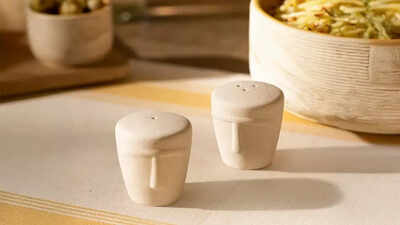ARTICLE AD BOX

Each organ in our body has its own set of responsibilities to keep the body functioning and healthy. While organs like the heart, lungs, and brain always grab the limelight for their role in keeping us alive and thriving, it’s organs like the liver and kidneys that work tirelessly without even much applause.
To tell the truth, kidneys are way more than the filtration system of our body (by removing waste products like urea and excess water); they clean the blood, regulate fluid, and manage the chemical and mineral (sodium, potassium, etc.) balance in the body. Kidneys also help in regulating blood pressure and even support red blood cell production.Naturally, being a multitasker, this organ needs tender love and care.
Because the organs that work so tirelessly can succumb to damage, and that too, silently.Kidney disease, the ‘silent killer’, manifests subtly in our body, and when it does, one can lose up to 90% of kidney function before experiencing noticeable symptoms. In fact, kidney disease affects over 850 million people globally, according to the International Society of Nephrology. This includes both chronic kidney disease (CKD) and acute kidney injury (AKI).
And to make things worse, we, thanks to some of our seemingly harmless habits, aggravate the various kidney diseases. Research shows how habits like overusing NSAIDs, drinking too much soda, or not sleeping enough quietly but consistently keep hurting our kidneys. In fact, one common food habit tops the list of harmful habits for kidney health: it’s using the salt shaker too much, way too much!
Keeping it (too) salty?
Salt seems innocent, apparently; just a simple seasoning, sprinkled to enhance flavor, but over time, it could be silently harming your kidneys.
Often invisible, hidden sodium in processed and restaurant foods can raise your blood pressure, strain your kidneys, and elevate your risk of chronic kidney disease (CKD) without obvious symptoms.How?Let’s dive deeper.

What does research say?
When you consume excess sodium, your kidneys work harder to manage fluid balance. This often results in higher blood pressure, setting the stage for kidney damage over time. In fact, systematic reviews and meta-analyses consistently link excessive salt consumption to worsening kidney function, dialysis initiation, and higher kidney-related mortalityA large British study, published in JAMA, involving around 460,000 adults, found that people who always added salt at meals had a 29% higher risk of developing chronic kidney disease (CKD) compared to those who rarely or never did.
Even after controlling for factors like obesity, high blood pressure, and diabetes, the risk remained significantly elevated, around 6% higher in the “always” group. Occasional salt-adders had a 7% increased risk, and regular users (but not always) saw about a 5% bump.Furthermore, Tulane University researchers replicated these findings using the same dataset, affirming a strong link between habitual salt use and kidney health challenges.
How too much salt hurts your kidneys
But how does making your food a tad bit more seasoned and tastier hurt your kidneys?For starters, high salt intake raises blood pressure by causing fluid retention. This extra fluid increases the pressure on blood vessels, including those in the kidneys, making them work harder and risking long-term damage. Over time, this stress can impair filtration function and lead to CKD. Additionally, for those with existing kidney disease, excess sodium can worsen symptoms like edema, high blood pressure, and protein in urine.
Reducing sodium to under 2 g/day (about 5 g of salt) helps improve blood pressure, fluid balance, and proteinuria.
How much is too much?
You have the salt shaker right on the table. You grab a bite and the food tastes a bit less salty. You reach out for the salt shaker. It’s perfectly fine to want to eat food that’s seasoned and tasty. But where to draw the line? When to stop using the salt shaker? How much salt is too much salt?Health authorities recommend keeping sodium intake below 2,300 mg/day (about one teaspoon of salt), with even lower targets of 1,500 mg/day for people at risk.
The World Health Organization suggests limiting salt to less than 5 g/day. Yet many diets exceed these limits easily through processed foods, restaurant meals, and salty snacks.
How to protect your kidneys and yourself from kidney damage
It's true. Salt is a brilliant taste enhancer. And who wouldn’t like to appease their taste buds while eating food! But here’s the thing: While salt may be an everyday kitchen/food staple, it’s also kidney health’s stealthy enemy.What to do, then?Skip the salt shaker: Add salt to the food away from the table.
Even a ¼ teaspoon adds 575 mg of sodium.Season smartly: Use herbs, spices, lemon juice, or vinegar instead of salt to boost flavor. Choose fresh foods: Avoid processed items like canned soups, fast foods, deli meats, and packaged snacks. These are often hidden sodium bombs. Use salt substitutes: Potassium-based alternatives have been shown to reduce stroke, cardiovascular risks, and overall mortality. However, check with a doctor first, especially if you have kidney issues.Follow diets like DASH, which are low in sodium and proven to reduce blood pressure, protecting both heart and kidney health.Disclaimer: This article is for general informational and educational purposes only and does not substitute for professional medical advice, diagnosis, or treatment. Always consult a qualified healthcare provider before making any decisions regarding your kidney health. Reliance on the content is at your own risk. In case of a medical emergency, please seek immediate medical attention.
The role of genetics in kidney cancer: Are you at risk?



.png)
.png)
.png)
















 1 week ago
8
1 week ago
8









 English (US) ·
English (US) ·